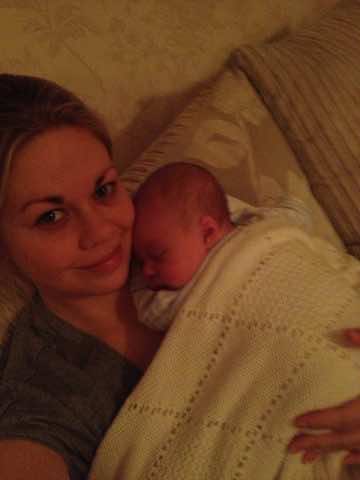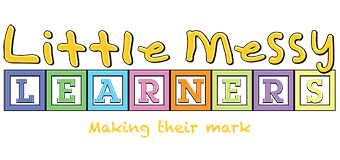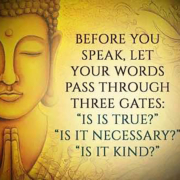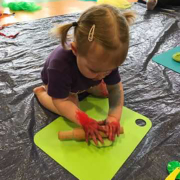Surviving Postnatal Depression & coming out the other side…
I’ll never forget the midwife asking me how I was doing a few days after returning home from hospital with my first child. I wobbled a little and said “oh I’m fine, just a bit tired,” and I gritted my teeth. I was clearly very convincing as she didn’t ask again and got straight down to business; stripping my sleeping baby naked and plonking him on the scales. “Nooooo!” I thought to myself “do you know how long it took me to settle him?” I could have cried. To be honest, I could have cried almost every time he woke up during those first few months because I knew that meant one thing – I’d need to feed him again and quite frankly my boobs couldn’t handle it. Some boobs are cut out to be feeders and some just aren’t. Mine fell into the later category, but still I couldn’t quite admit it. Slowly over the following few months, I drove myself quietly insane, whilst trying desperately to keep up with the ‘breast is best’ notion. I’m sure people tried to get me to stop – I just couldn’t. I was completely obsessed and thought it would make me a failure if I gave up. So there we have it in a nutshell… my descent into full-blown post-natal depression. I had read about the ‘baby blues’ and how you can feel tearful and overwhelmed a lot… Wow, what an understatement. But this also meant that I thought how I was feeling was normal and I just had to suck it up and get over it. In reality, I had passed that point many months prior and there was only one thing that was going to get me out of it now: drugs. The prescription kind, mind you.
It took me a very long time to talk about it though. I think I had managed to alienate a lot of my friends in that first year by being so sad and mopey and struggling so much. Even my amazingly supportive husband was finally at a bit of a loss for words. So off to the doctors I went after almost a year of hell. I returned home with a bag of antidepressants, feeling more of a failure than ever before. That feeling was short lived though thankfully as I slowly started to open up to people. Before long I found a few of my friends had taken them too! Some had come off them and some were still on them. Everyone’s story was different. A couple of my closest friends had actually taken them and I hadn’t ever realised. Mental health is just not something everyone feels comfortable talking about and it’s such a crying shame. It is so, SO important to be able to talk about your feelings and to have someone who can empathise and relate to you. There’s nothing worse than feeling alone, particularly when you have a young baby or a child, so having a good listening ear can be the difference between a good day and a bad day.
However, not everyone is fortunate enough (for want of a better word) to have a friend who has either experienced depression or is empathetic enough to be able to be a good listener and really understand. And herein lies the problem. Many mums don’t realise that they are suffering from PND and therefore don’t talk about it. Some cope alone until it is tragically too late. It can be devastating and all consuming and drives some women to suicide. Untreated mental illness – including PND – is the number 1 cause of suicide in England. It is thought that around 1 in 7 new mums will develop PND and statistics don’t reveal just how many of them result in actual suicide. But even if it is just one; it is too many. It is an entirely treatable mental illness with a brilliant recovery rate. You do have to get yourself to the doctors first though, and that’s the hard bit. Statistics released last year estimated that only around 15% of women suffering from PND seek actual medical help. Many of the 85% that go untreated must suffer in the most awful silence imaginable.

I’m smiling but the smile doesn’t quite reach my eyes does it?
It’s also important to recognise the affect it can have on our relationships with our partners. A difficult pregnancy and a newborn can put enormous strain on even the strongest of relationships. Suddenly you’re not each other’s world anymore; your baby is. Add into the crazy mix a lack of sleep, physical pain, stress, financial worries, anxiety about your new responsibilities, guilt… it’s little wonder that many relationships don’t survive the birth of a child. It is also not surprising that childbirth can really affect DADS too! PND in men is rarely spoken about and is actually quite common. According to statistics released by NCT around 40% of dads will suffer some kind of mental illness following the first year of a baby’s birth and around 10% will suffer full blown PND. This often goes undiagnosed and develops into much more serious and debilitating depression. Depression and suicide in young men is extremely high and rising every year. This is compounded by a lack of NHS services but also the fact that MEN DONT TALK like women do. If you think your man is struggling (or you are a man struggling) please know that you’re NOT alone and there is help available to you. There is no single answer as to why it affects some men and women and not others but I know one thing – it is NOT about weakness. A baby is a tiny thing but a huge responsibility and this change to our life can cause a huge emotional challenge. The biggest, strongest, bravest men can be hit hard by depression and really the test of their bravery is if they can face up to what is going on in their head and talk about it.
What does PND look like in a man? Good question – it looks the same as it does in a woman to be honest but here’s a great website with lots of the symptoms and some practical advice:
https://www.nct.org.uk/parenting/postnatal-depression-dads-relationships
So… on that note we need to know that there is something we CAN do about it. We can’t stop ourselves getting it (been there, bought the placenta pills to prove it… but that’s another blog in itself) however, we can limit the damage it does to us and the precious time it saps from us and our children.
Here are a few tips to edge yourself out of the black hole or maybe even help you to recognise PND in yourself or someone you love.
Recognise what is normal and what isn’t normal: Baby blues are experienced by such a high proportion of mums (over 80%) that it is now considered perfectly normal. In the week following birth, our bodies go through major hormonal adjustments, never mind all the physical changes. Many mums feel weepy and irritable as the hormones that have supported them through pregnancy start to leave and make way for other new hormones that make milk. Yey! You can expect waves of tears and emotions, feeling tired and angry, crying at the drop of a hat… the list goes on. In fact, post-natal depression shares many of the same symptoms, so it’s little wonder it can go undetected. The difference between the two is that PND is much more severe. In many cases it can lead to suicidal thoughts and an inability to bond with your much loved and wanted baby. The tearfulness and irritability of PND will last much longer than it does with the baby blues, and this isn’t normal. It’s not your fault and you CAN do something about it.
Talk to an adult every day: I lost track of the number of times I thought to myself “I haven’t spoken to anyone today!” after I’d had my first baby. I didn’t make this mistake second time around. I ensured I picked the phone up and rang my husband or a friend at lunch time or I went out to visit someone. It’s REALLY hard to drag yourself out when you have depression, but it’s vital to make connections with people and communicate how you’re feeling. Make plans and try and stick to them. It’s easy to cancel when you’ve a sleepless night and you’re shattered but going to see a friend or even just popping to see parents/ grandparents will give you some much needed adult interaction.
Get showered and dressed EVERY day: I remember clearly one of my best friends saying, “Yey, you’re dressed!” When she came round to visit me. I hadn’t realised until that moment that I’d been wallowing in my PJs for far too long. Getting a shower, even if you don’t wash your hair and putting some clothes on can help you to feel that little bit more normal and really refresh you and energise you for the day ahead. A hot shower also gives you a few minutes of alone time to clear your head. Wait until baby is napping or settled in their basket and then go and grab a few moments of peace. Even if you’re not planning to go anywhere that day, make the effort for yourself and force yourself to get dressed.
Go for a walk: Everyone knows that some vitamin D is a natural mood elevator! A walk around the block ticks so many boxes – it means you HAVE to get dressed, you get some sunshine (maybe) you both get fresh air and you get some gentle exercise too (another mood booster!) Even if it’s cold or raining you can get bundled up warm under a brolly and enjoy the benefits of being outside. You may have nowhere to go but just get out and escape your four walls. I found this a life-saver. If you’re lucky and live in a village with a coffee shop or a library then you can make a stop there for a cup of tea or a quiet browse of the books. Hopefully baby will fall asleep on the walk there and you can have a quiet cuppa.
Talk about your feelings: There are fewer children’s centers these days, however there are still many local mum and baby support groups. You can access lots of groups for free – many churches do mother and baby groups, as do many schools and nurseries. Paid classes such as baby massage, sensory, messy play (I’m not plugging here, I swear!) are all great ways to meet other new mums. Don’t be afraid to strike up a conversation with these mums either! Maybe that mum that’s quiet and not speaking to anyone could be feeling the exact same way as you? I’ve started chatting to a mum in Costa before now and come away feeling so much better. But ultimately, the people you need to talk to are your partner, parents or close friends. If you’re not able to do this, your GP can and will help you. Be brave! You gave birth – you can do anything!
Make time for your partner: It might be a while before you’re up to a date night out without the baby but that doesn’t mean you can’t have a date night in. I much prefer them anyway! Have tea together and turn your phones off for an hour. Curl up on the couch and watch a favourite film. Laugh together and try and talk about things non-baby related. (I found this really hard!) Do something kind for your partner, like run them a bath, make them a nice tea or give them a massage. Remember why you had this baby in the first place and why you are together – it can be easy to forget with the stress and strain of a baby or young child. Resentment is at an all time high when you have a baby – you can resent a partner’s free time out of the house when you’re home all day with a baby, you resent them if they get more sleep than you, you resent that their body is their own and yours no longer is… but allowing this resentment to fester is dangerous. Try really hard to understand that this is a moment in time and it will get better. Tell them how you feel and don’t keep it bottled up. You’re a team after all and you share this baby, so you must be able to share your feelings.
I have suffered with this debilitating illness twice: once in silence and once very openly and honestly. I found both experiences hard but nothing could have been as hard as keeping it bottled up inside and thinking I had nobody to talk to. I have taken medication on and off and can honestly say now that, for me, it was a life-saver. It took a while to find the right dosage – turns out I needed quite a high one (the dosage is NO indication to the severity of your depression by the way – it is just how quickly your body absorbs it) but once I was on the right level I found that my hormones and mood levelled out and I just felt… me again. I was calmer, less tearful, less irritable. I could think clearly and sleep properly. A fog lifted and I never want it to return again. But if it did, I know exactly where I would go. Not everyone needs medication of course – for some people some therapy in the form of counseling can be just as beneficial. But you can’t know until you try. So for now, I am through the other side – I talk more about how I’m feeling and I recognise when I am feeling low. I look after myself now and I’m kind to myself. I did this for my babies – they deserve a happy, well-rounded mum but ultimately I did it for me. I know I will have good days, great days, average days and really crappy days. These days are few and far between though and really, how many mums don’t have crappy days? So if you’re feeling low and you can’t shake it off, please, please talk to someone. Hell, talk to me, my number is on my page! I’m NO expert in this AT ALL, all I am is a mum who came out the other side…
Much love,
Holly x







Leave a Reply
Want to join the discussion?Feel free to contribute!